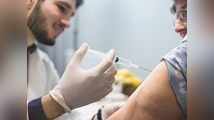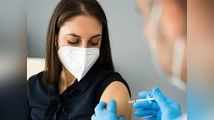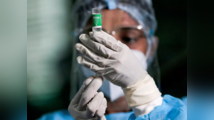

While government authorities are working to bridge the gap between the availability of coronavirus vaccines and wide-scale inoculations, those who have recently recovered from the viral infection have been asked to wait for at least 3 months before getting the jab.
The change in guidelines, some believe, will help more people get inoculated and achieve some level of immunity in the current timelines where virulent viruses are wreaking havoc. But, it also makes those who have caught the virus worry- how safe are they, without being vaccinated?
ALSO READ: Does a severe COVID infection grant more immunity?
Some, in the fear of being reinfected, are also getting vaccinated before the 3-month wait period, hoping to recover sooner. But, does that actually help you recover? Or would it be best to wait? We explain to you why the decision has been taken:
readmore
02/6Why are COVID-19 survivors asked to defer vaccination right now?
The current recommendations, advising COVID-19 recovered patients to wait at least 3 months (or 90 days) after testing negative were put in place in May, when the fourth phase of vaccination kickstarted and the second wave was still surging.
Study suggests COVID immunity may last upto 10 months
The decision, which is also something recommended by doctors, is suggested because it is presumed that a person having battled the infection already has some level of immunity, naturally.
readmore
03/6How much immunity kicks in after fighting COVID?
Now, while it is known that the body builds sufficient immunity and protective antibodies in response to COVID-19, the question of how long immunity after COVID-19 lasts remains largely unanswered.
Over the past few months, there have been several studies and clinical observations on the same. However, most of the available data suggests that peak immunity against coronavirus lasts for around 90-120 days after the infection. After this timeline, it is suspected that immunity starts to wane, and may not be as strong as before. A lot of these factors, about how strongly antibodies are mounting also depend on factors like the severity of infection, immuno-health, age and gender.
However, certain studies have also observed that for some people, immunity may also last a lifetime. Thus, keeping in mind the above-listed considerations, it is generally perceived that a person who has contracted the virus once stays protected for at least 90 days time and hence, may not benefit much from a vaccine’s working.
readmore
04/6Vaccine driven vs natural immunity: Which is better?
There’s also reasoning which makes many believe that natural immunity is better than vaccine-driven (artificial) immunity.
Natural immunity is said to be the immunity that builds up weeks following the body fighting an infection, on its own, whereas, artificial immunity is built up when the body is injected with a vaccine that mimics the infection and trains the immune system to recognize the pathogen. Screenings and observations have also observed a sizeable difference in their efficacy rates- while natural immunity could offer upto 99.99% protection, vaccines could only go as high as 90-94.5%.
Now, while a recovered patient will have impactful natural immunity, there is no relevant study to suggest that vaccine-driven immunity will add to it. Thus, vaccines which work to deliver an effective response, will only be the most helpful for a person who has had COVID previously, if taken after the wane of natural immunity.
readmore
05/6Is reinfection risk high with variants?
The virulent nature of the mutations has considerably raised reinfection risks and has also swelled the number of post-vaccination infections (breakthrough ones). It is suspected that as the virus mutates, it becomes ‘smarter and is better able to escape immune defences and spread more voraciously, causing infections. Thus, we are right now seeing a lot of reinfection and breakthrough cases as well, especially amongst those who are immuno-compromised. However, do remember that the incidental risk is still quite rare, and may not be as scathing or severe in nature.
readmore
06/6Does it benefit if you actually take the vaccine before the stipulated time?
FILE – In this Wednesday, March 24, 2021 file photo, a nurse holds a vial of the AstraZeneca COVID-19 vaccine, manufactured by the Serum Institute of India and provided through the global COVAX initiative, prior to vaccination in Machakos, Kenya. The Serum of Institute of India says it hopes to start delivering coronavirus vaccine doses to the U.N. backed effort known as COVAX and to other countries by the end of the year, in a move that will significantly set back global efforts to immunize people against COVID-19. (AP Photo/Brian Inganga, file)
readmore
read the full story about Why COVID survivors need to defer vaccination
#theheadlines #breakingnews #headlinenews #newstoday #latestnews #aajtak #ndtv #timesofindia #indiannews









Leave a Reply